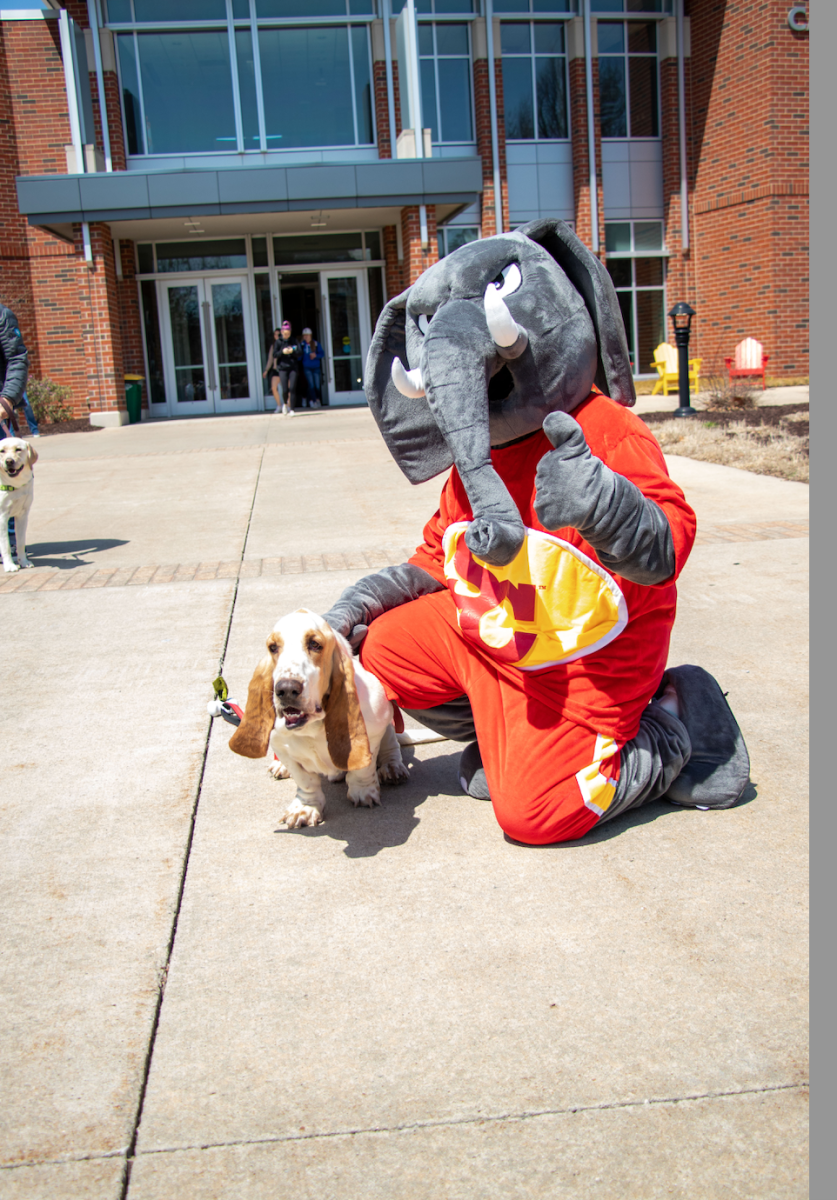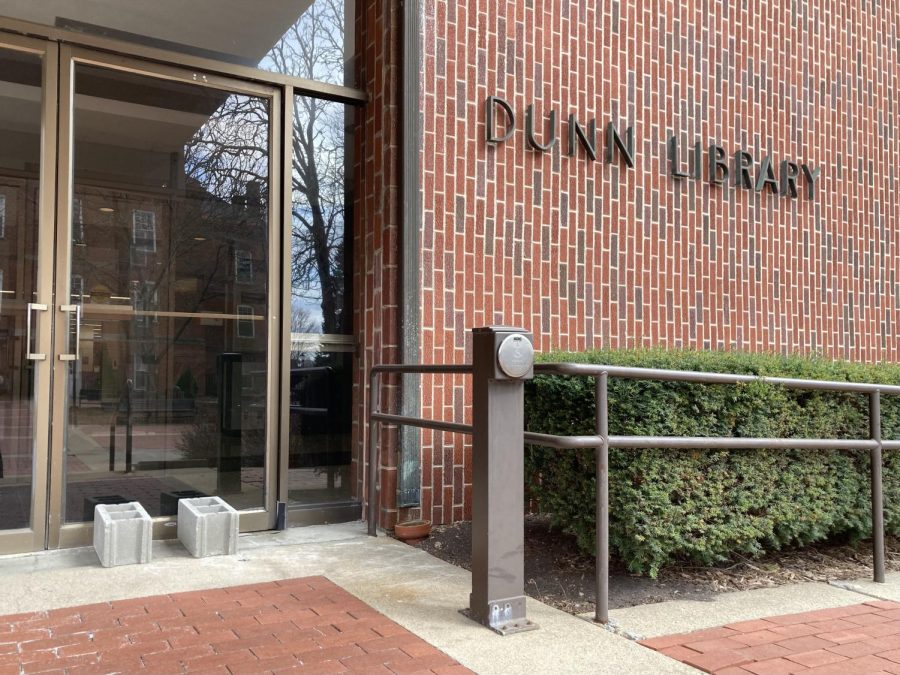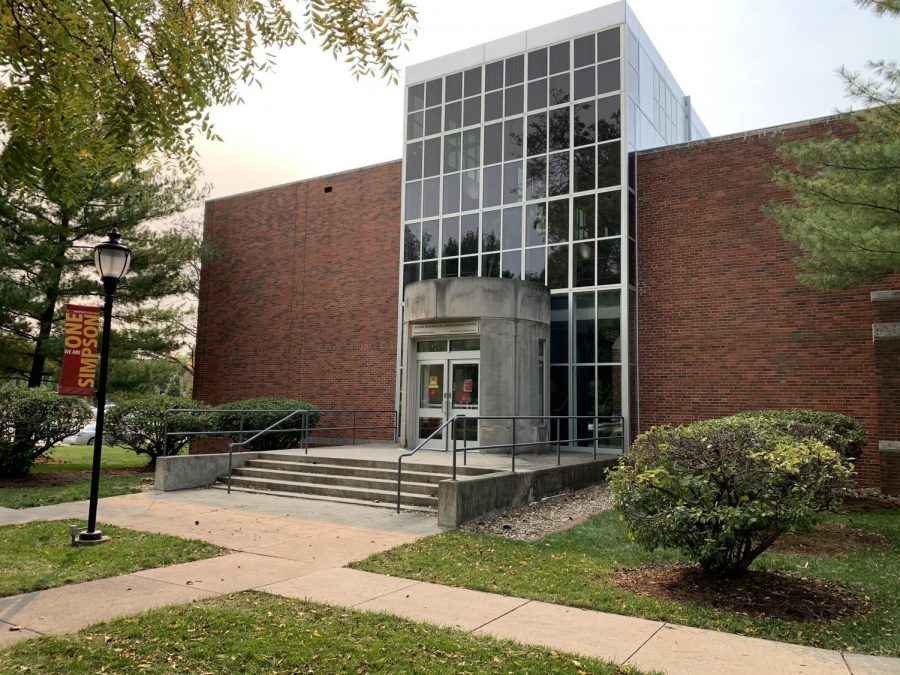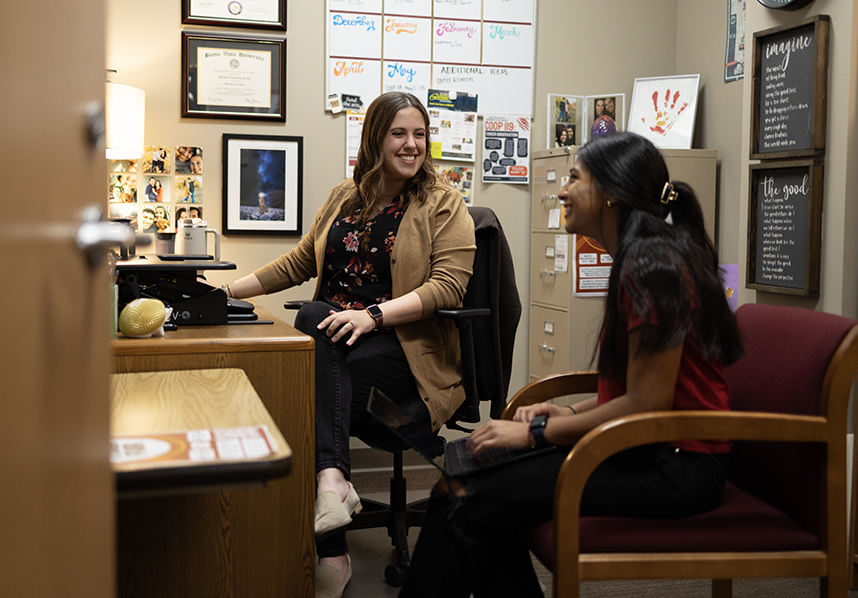Dogs may no longer be allowed in Carver Science Center due to a potential policy change.
Last school year, professors in Carver Science Center were allowed to bring their dogs into the building for the first time. Dr. Lindsay Ditzler, Dr. Amy Doling and Dr. Faithe Keomanivong have a schedule for when they bring their dogs to the office. This way, there is not an overwhelming number of dogs in the building during a certain time. However, Simpson is reassessing the policy which allows these professors to bring their furry friends to work.
A survey was sent out to Simpson faculty at the beginning of this semester asking if they believe dogs should still be allowed inside Carver. Although the results of the survey have not yet been released, professors and students are worried that a policy change may be in place which would ban dogs from the building.
Dr. Ditzler, Co-Department Chair of chemistry and physics, brings her dog, Lucy, into her office every Tuesday. A big reason Ditzler brings Lucy to Carver is to ease tension when students meet with her during office hours.
“While I don’t feel that I’m overly intimidating, I think that any power dynamic there exists intimidation, and I think Lucy just reminds people that I’m not as intimidating as I seem,” said Ditzler.
Meeting with professors one-on-one can always be a fear for students. Although office hours are a great time for students to get the help they need, the idea of going to a professor for help brings fear to many students due to the feeling of a power dynamic between the student and the professor. Ditzler has noticed that students feel a lot more comfortable during these one-on-one meetings when Lucy is in the room.
“She has a lot of visitors that are students, she has a lot of visitors that are my faculty peers. They just usually smile for the time that they’re around her,” said Ditzler.
Ditzler believes that dogs improve the mental health of both students and professors. She said that many of her students come to her office on Tuesdays just so they can see and pet Lucy. Along with this, Ditzler said she enjoys it when other professors bring their dogs on Thursdays and Fridays because she will go to their offices and is always happy to see the other dogs.
According to the American Heart Association, “Studies show that dogs reduce stress, anxiety and depression; ease loneliness; encourage exercise and improve your overall health.”
While students are away from home, they may not be used to not having their dogs, cats or any other pets they may have. With professors bringing their dogs into the office, it gives students another way to cope with their stress or anxiety, or it just gives them a burst of positive energy for the day.
Ditzler believes that students should have been involved in the survey instead of just faculty, because of how many students come to her office on Tuesdays.
Cooper Nuss, sophomore chemistry and education studies major said, “The dogs have become part of Carver and should be allowed to stay.”
Nuss brought up a possible reason for reassessing the policy could be allergy reasons among faculty or students. However, he said that as long as the dogs stay in the professors’ offices, then this should not be a problem.
Both Nuss and Ditzler believe that the dogs should be allowed to stay as they have become a part of Carver and they improve mental health among faculty and students.
Ditzler said, “My only objective is to help learning, and if Lucy helps me do that then I want to keep doing it.”









